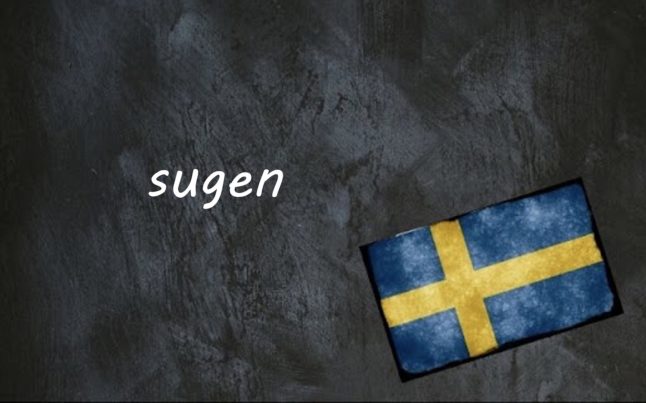Sugen is usually accompanied by the preposition på to create the phrase sugen på, and excitingly it can be combined with both nouns and verbs.
For instance, you could say jag är sugen på en fika, where en fika (roughly translated as a short coffee and/or cake break) is the noun, or jag är sugen på att ta en fika, pairing the phrase with the verb att ta. Both of these translate as something like ‘I’m craving a fika’, ‘I’m in the mood for fika’, or ‘I fancy a fika (in British English)’.
When used with nouns, sugen is most often used to cravings related to food or drink, but with verbs it can be paired with almost any phrase. You can also use it in the negative: Ingen var sugen på att prata (No one felt like talking).
Alternatively, you can use sugen as a suffix, such as jag är kaffesugen (craving coffee) or semestersugen (craving a holiday). These words can also be used before the adjective, and the ending of sugen declines to agree with the noun it’s describing: for example, två kaffesugna män (two men who were craving coffee).
You can also describe yourself as just sugen in general, which would mean you feel like eating a (usually unhealthy) snack, as opposed to wanting food because you’re hungry (that would be hungrig).
And bear in mind that you can also tappa sugen (literally: to drop or lose the craving), which means to lose motivation or generally feel like giving up.
The noun ett sug is stronger and has slightly different connotations, so ett kaffesug refers to a much stronger and constant craving for coffee, and ett alkoholsug means ‘an addiction to alcohol’. Similarly, the phrase suget efter means ‘craving for’ in a much stronger sense than sugen på: typically the former phrase refers to persistent cravings often with negative consequences, while the latter is more of a passing fancy.
To avoid further sugen confusion, you should also be aware that sugen also appears in a different context, as the perfect participle of the verb att suga.
This means ‘to suck’ and is used in a few ways – the literal sense to describe sucking up liquid or dust (like in the word for a vacuum cleaner, dammsugare) as well as in the Americanised slang sense of describing something negative (det suger – that sucks).
You can also use it in the phrase att suga på karamellen (literally: to suck on the boiled sweet), which describes trying to extend the enjoyment of a particular thing as long as possible.
Example sentences:
Jag är verkligen sugen på en kopp kaffe och en kanelbulle.
I’m really craving a cup of coffee and a cinnamon bun.
Hjälp, jag har tappat sugen.
Help, I’ve lost all motivation.



 Please whitelist us to continue reading.
Please whitelist us to continue reading.
Member comments